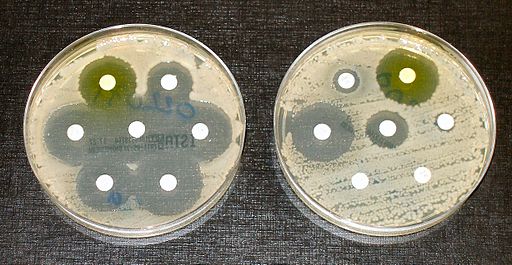- Have any questions? Contact us!
- info@dr-rath-foundation.org

Irregular Heartbeat
April 5, 2017
Who Knows What’s Best For Your Children?
April 13, 2017Long-Term Use Of Antibiotics May Raise Risk Of Bowel Cancer

A new study has found that people taking antibiotics for long periods of time have an increased risk of developing polyps in the colon, a known precursor of bowel cancer. Published in the journal Gut, the research adds further weight to evidence that maintaining a healthy intestinal microbiota may play a key role in the prevention of cancer. With antibiotic resistance now a growing problem worldwide, and natural approaches to controlling infections already having been discovered, the study also provides a timely reminder of the urgent need to transform our healthcare systems towards using safe, natural, preventive approaches that are free from side effects.
To carry out their investigation, the researchers analyzed the health records of 16,642 female nurses who were aged 60 or over in 2004. Among women who had taken antibiotics for two or more months when aged between 20 and 39, they found a thirty-six percent higher risk of being diagnosed with a polyp (compared to women in the same age category who hadn’t used the drugs). Women who had taken antibiotics for two or more months between the ages of 40 and 59 were sixty-nine percent more likely to be diagnosed with a polyp. Taking the drugs for at least fifteen days between the ages of 20 and 39, and then again between 40 and 59, resulted in a seventy-three percent increased risk.
Given that antibiotics are known to fundamentally alter the intestinal microbiota by reducing the diversity and number of bacteria, the researchers suggest their use may play a crucial role in the development of bowel cancer.
Natural alternatives for controlling infections

Antibiotic resistance tests; the bacteria in the culture on the left are sensitive to the antibiotics contained in the white paper discs. The bacteria on the right are resistant to most of the antibiotics. – Dr Graham Beards at en.wikipedia [CC BY-SA 4.0], via Wikimedia Commons
At the current time, even many doctors do not yet fully appreciate the extent to which micronutrients support all the critical steps for mounting an effective immune response. These steps include non-specific defense components such as the synthesis of interferon and function of phagocytic cells; the protective anti-microbial barriers created by the skin, mucus membranes, tears, saliva and gastric juice; and the production of antibodies and optimization of cell-mediated immunity. In order to successfully prevent and control infections naturally, we therefore need to understand how best to take advantage of these properties.
Taking advantage of nutrient synergy

When looking for alternatives to antibiotics, many people initially turn to vitamin C. While this popular immune-supporting vitamin is obviously a good start, using it by itself means missing out on the impressive additional immunological benefits that can come from taking advantage of nutrient synergy.
Vitamin C is certainly necessary for immune system support, but it works far more efficiently when combined with additional micronutrients such as zinc, selenium, and quercetin. Other nutritional substances that can help optimize white blood cell production and immune function include vitamin A and B vitamins, as well as trace elements such as iron and copper. The use of carefully balanced synergistic combinations of such micronutrients, as pioneered by scientists at the Dr. Rath Research Institute under the direction of Dr. Aleksandra Niedzwikeci, has been scientifically proven to optimize white blood cell production and enhance immune function.
While antibiotics have undoubtedly saved many lives, the evidence is growing that, as with all drugs, their use – and particularly their overuse – can carry a risk of long-term problems. Potentially, therefore, when we eventually reach the point that global healthcare systems routinely employ nutritional and Cellular Medicine approaches for preventing and controlling infections, the consequent reduction in the use of antibiotics may also result in a significant reduction in deaths from bowel cancer. With almost 1.4 million new cases of this disease diagnosed globally in 2012 alone, that achievement would undoubtedly be a very positive step towards our Foundation’s ultimate goal of Health for All.



